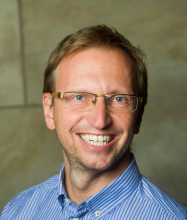MSE 298 Seminar: Molecular Modeling in the Age of AI - From Energy Materials to Device Simulations

Abstract: Atomistic modeling, rooted in density functional theory and molecular dynamics, has been a cornerstone of materials science research for nearly four decades. This approach offers a magnifying lens into the atomistic texture of complex systems, enabling the interpretation of experimental data, elucidating structure-function relationships of materials, and exploring extreme conditions. However, on one hand, the efficacy of molecular simulations is hindered by the inherently high computational costs of electronic structure calculations, which restrict the size and complexity of systems accessible to accurate electronic structure calculations to a mere few hundred atoms. On the other hand, the use of empirical potentials grants access to billion-atom models, albeit at the expense of diminished accuracy and transferability. In this talk, I will illustrate how the integration of advanced statistical learning methods is catalyzing a paradigm shift in materials modeling, combining accuracy, transferability and computational efficiency. I will discuss the use of machine learning models to predict the stability of new intermetallic compounds for energy-related applications, and to probe the limit of heat transport in inorganic crystals. I will also illustrate the development and the application of ab initio quality machine-learning potentials to simulate materials crystallization at extreme conditions and thermal dissipation in electronic devices.
Bio: Davide Donadio is a professor of chemistry at UC Davis. He received a master's degree in physics and a doctorate in materials science from the University of Milan. Before his tenure at UC Davis, he led a Max Planck Research Group at MPIP in Mainz (Germany) and was appointed Ikerbasque professor at DIPC (Donostia, Spain). His research in theoretical and computational materials modeling covers materials discovery, transport phenomena, crystallization and the study of surfaces and their chemical reactivity. He is an elected fellow of the AAAS and of the APS (DCOMP). Naotheory Group https://nanotheory.github.io/
Share
Related Content
| Attachment | Size |
|---|---|
| 1.92 MB |
Upcoming Events
-
CEE Ph.D. Defense Announcement: Breaking New Ground - Excavation Performance in Tar-Infused and Conventional Soils for LA Metro D-Line Extension Project
-
MSE 298 Seminar: Tunable Optical Metasurfaces And Zero-Index Materials
-
EECS Seminar: Terahertz metasurface quantum-cascade vertical-external-cavity surface-emitting-lasers (VECSELs)
-
EECS Seminar: AI-Driven Design Automation for Multi-Chip Integration in AI Chips
-
CBE 298: Cell-Free Systems for Studying and Engineering Protein Assemblies
